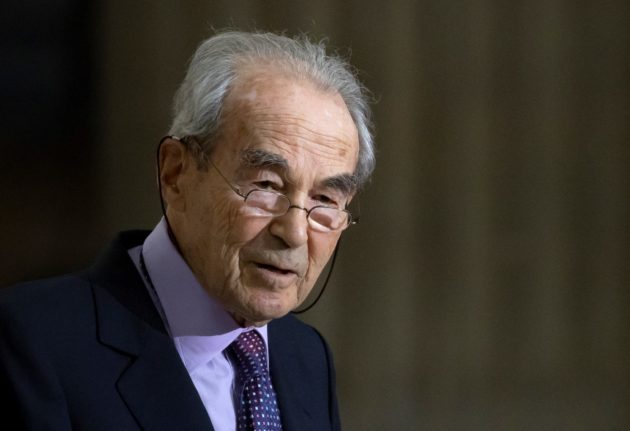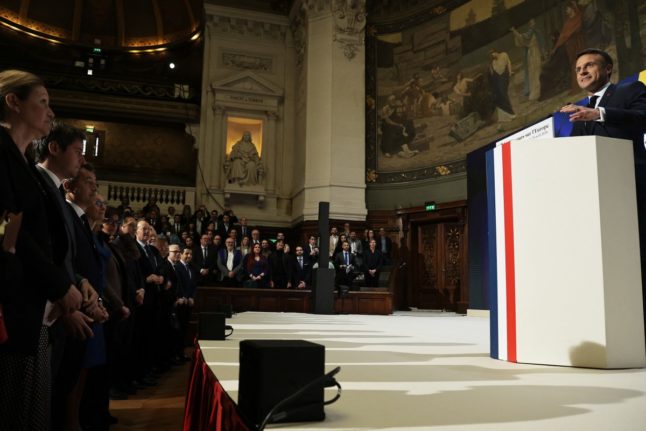The soft-spoken attorney, who said he could not abide by a “killer justice system”, was widely vilified for pushing through legislation banning the death
penalty at a time when most French people still supported the practice.
He said later he had “never felt so lonely” in fighting capital punishment, which in France was carried out by beheading with the guillotine, a practice
dating back to the French Revolution of 1789.
But in years to come he would be hailed for his integrity and statesmanship.
The son of a Jewish fur trader who was deported to a Nazi death camp during World War II, he had built a reputation as a lawyer for defending – often
successfully – notorious cases that his peers wouldn’t dare touch.
“We entered the court by the front door, and once the verdict had been read and the accused’s head was safe, we often had to leave by a hidden stairway,” the man dubbed “the murderers’ lawyer” by proponents of the death penalty, recalled.
His career took a decisive turn in 1972 after one of his clients, Roger Bontems, was beheaded for his role in the murder of a nurse and a
guard during a prison escape.
Badinter was haunted by his failure to win a stay on Bontem’s execution in a case that changed his stance on the death penalty “from an intellectual
conviction to a militant passion”.
Five years later he helped convince a jury not to execute Patrick Henry for the murder of a seven-year-old boy, becoming an instant hate figure for many French people, who were baying for Henry’s head.
Badinter turned the case into a trial of the death penalty, calling in experts to describe in grisly detail the workings of the guillotine.
“Guillotining is nothing less than taking a living man and cutting him in two,” he argued.
In all, he saved six men from execution during his career, eliciting death threats in the process.
He was born in Paris on March 30, 1928, to a Jewish fur merchant who had immigrated from Bessarabia, now Moldova.
When he was 14, his father was among a group of Jews rounded up by the Gestapo in the southeastern city of Lyon and and deported to the Sobibor
concentration camp in modern-day Poland, where he died.
The young Badinter developed a keen sense of justice that led him to a law degree in France followed by a Masters from New York’s Columbia University, with a focus on ethical issues.
READ ALSO Reader question: When did France stop guillotining people?
On his appointment as justice minister in President Francois Mitterrand’s Socialist government in June 1981, Badinter made ending the death penalty an immediate priority.
France’s last execution had been in 1977 with the death of Hamida Djandoubi, a Tunisian immigrant convicted of torturing and murdering a young
woman.
Just four months after taking office Badinter ushered an abolition through parliament with a landmark speech denouncing the “stealthy executions at dawn” that were France’s “collective shame”.
Demolishing myths about the supposed deterrent effect of the death penalty, he argued: “If fear of death stopped men in their tracks we would have no great soldiers or sporting figures.”
Badinter continued to make history in 1983 when he succeeded in getting Bolivia to extradite Klaus Barbie, a former chief of the Nazis’ secret police,
the Gestapo, to France.
Notorious during the German occupation of France as the “butcher of Lyon,” Barbie was put on trial for crimes against humanity and sentenced to life
imprisonment in a landmark case that saw Holocaust victims take the stand for the first time in France.
During his five years as minister Badinter also scrapped a law discriminating against gays on the age of sexual consent and worked to improve conditions in French prisons.
A towering figure in French public life, he served as president of the Constitutional Council and as a member of the French Senate from 1995 to 2011.
The death penalty remained the bane of his existence until the end.
Badinter vowed he would work “until the last breath of life” to attain a global ban on the practice and continued to campaign against executions in China and the United States into his later years.



 Please whitelist us to continue reading.
Please whitelist us to continue reading.
Member comments